Writing Inspirations: “In Which Eve Names Everything Else”
My mini-play/story, “In Which Eve Names Everything Else,” recently won 2nd place in the 2013 Mormon Lit Blitz contest. (If you’re interested, you can also read the discussion of my play.)
The stories that I write are often inspired by a strange combination of things that I’ve been interacting with. Sometimes I have no idea what those inspirations are; other times it’s quite clear. For this story, I can trace four direct influences:
1. A Barenaked Ladies song
The day before writing the story I was listening to “A Word for That” on Toddler Radio. Here’s the opening lyrics of the song:
There’s a word for that
But I don’t seem to know it
Sometimes I grow a mustache
Just so I don’t have to show it
The word for that
That someone somewhere chose
For that little dented skin
Between my upper lip and nose
There’s a word for that
What does it start with, the word for that?
I’d sound so smart if I only knew
The word for that, perhaps you do
The word you’re looking for is philtrum
If you’ve short story, it’s pretty clear how the song impacted my ideas.
2. The History of Science
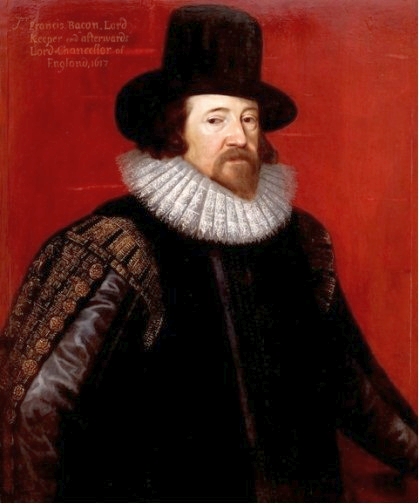 Over the past few years I’ve been reading lots of articles or books on the history of science. And in one of those texts (or perhaps several of them) it mentioned that alchemists used new words to obscure things, make them more mystical and less understandable, but in the “new science” of the Enlightenment, people like Bacon used new words to make things clearer.
Over the past few years I’ve been reading lots of articles or books on the history of science. And in one of those texts (or perhaps several of them) it mentioned that alchemists used new words to obscure things, make them more mystical and less understandable, but in the “new science” of the Enlightenment, people like Bacon used new words to make things clearer.
For several months I had been thinking about how you need a word for something if it becomes an object of study in and of itself.
3. A Book on Writing Scenes
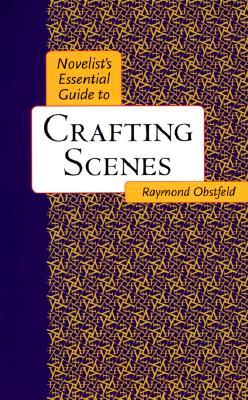 Just a few days before writing the play, I finished reading an excellent book, The Novelist’s Essential Guide to Crafting Scenes. I honestly had never thought about the scene as a unit before reading this book, and thinking about what a scene has to do really influenced the style in which I wrote the mini-scenes in my play (one of which is only two lines long, yet I feel is a complete scene).
Just a few days before writing the play, I finished reading an excellent book, The Novelist’s Essential Guide to Crafting Scenes. I honestly had never thought about the scene as a unit before reading this book, and thinking about what a scene has to do really influenced the style in which I wrote the mini-scenes in my play (one of which is only two lines long, yet I feel is a complete scene).
4. A college class from my undergrad years
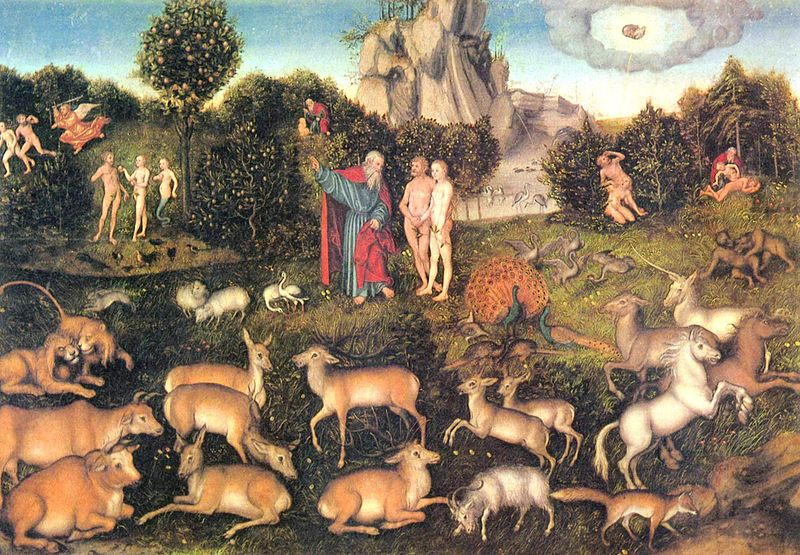 Back in 2007 I took a Humanities capstone course, “The Eden Theme in Western Culture.” We read all sorts of Adam and Eve stories, and looked at how the Eden them influenced exploration, gardening, religion, and even film. This ideas sunk into me, and have forever changed the way I see Adam and Eve.
Back in 2007 I took a Humanities capstone course, “The Eden Theme in Western Culture.” We read all sorts of Adam and Eve stories, and looked at how the Eden them influenced exploration, gardening, religion, and even film. This ideas sunk into me, and have forever changed the way I see Adam and Eve.
After my story was published, a reader pointed out that Mark Twain also wrote a humorous story about Adam and Eve naming things. I’d never heard of it before writing my play, but having read it, I can say there are some similarities, though Twain’s is much longer and much less reverent. (Twain actually wrote a whole set of Adam and Eve works. The one I just read is called “Extracts from Adam’s Diary.” I still need to read “Eve’s Diary,” which looks like it has amazing illustrations.)
On Writing the Play
I have never written the play before. I composed the first half, basically word for word, while I was in the shower. It was a long shower. I came out and transcribed it in between feeding kids, and wrote the rest that day.
A trusted reader gave me back a short set of revision notes. I submitted it to the 2013 Mormon Lit Blitz contest. It was chosen as one of 11 finalists from about 200 entries. The contest editors gave me a few minor revision notes. I revised. And then it was published.
It was one of those unusual circumstances where I felt like the story was largely given to me, where not very much changed from the first draft to the final version. You can call it a muse if you want, though I don’t believe in Greek goddesses. I’ll call it a blessing.
Image Credits:
- Painting of Sir Francis Bacon, by Frans Porbous the Younger, Wikimedia Commons
- “Paradise” by Lucas Cranach the Elder, Wikimedia Commons
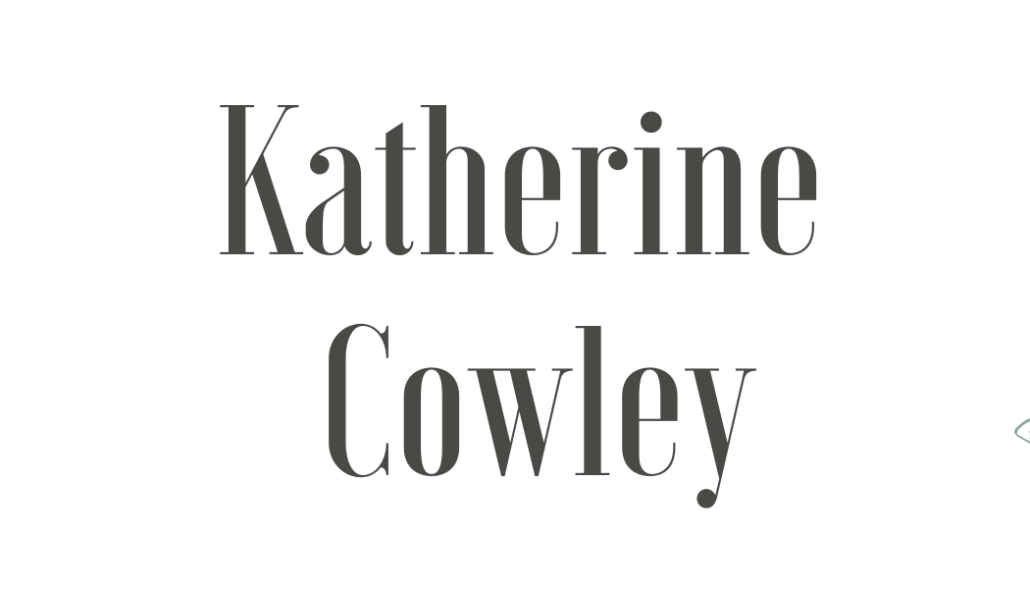
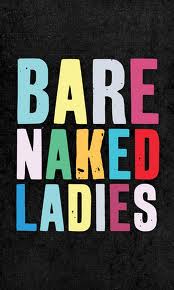
Leave a Reply
Want to join the discussion?Feel free to contribute!